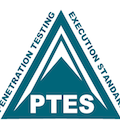Penetration Testing
Why pursue penetration testing services?
By partnering with Deploy360 for our Penetration Testing service, your organization can proactively identify and address vulnerabilities, safeguard valuable data, and enhance overall cybersecurity resilience. Our team of skilled and certified professionals, each holding at least one certification such as OSCP or CEH, will work closely with you to ensure that your systems and applications are fortified against potential threats. We provide penetration testing services for network, cloud, and application environments, helping you prepare for compliance needs including PCI, ISO, and FedRAMP. Our approach follows standard penetration testing formats, including the Penetration Testing Execution Standard (PTES) and NIST 800-53 Rev5, ensuring a thorough and reliable assessment of your security posture.




- Identifying Vulnerabilities: Our expert team of ethical hackers will diligently search for vulnerabilities, misconfigurations, and weaknesses in your systems, applications, and networks.
- Assessing Security Controls: We’ll evaluate the effectiveness of existing security controls, policies, and procedures to ensure they adequately protect your organization’s assets.
- Risk Assessment: Through in-depth analysis, we’ll quantify the potential risks associated with identified vulnerabilities and provide actionable recommendations for mitigation.
- Compliance and Best Practices: We ensure that your organization complies with relevant industry standards, regulations, and best practices concerning cybersecurity.
Methodology
Our Penetration Testing methodology follows a systematic and well-structured approach to ensure accurate and reliable results. The key steps in our methodology are as follows:
- Planning and Scope Definition: We collaborate with your organization to understand your specific requirements, define the scope of the assessment, and determine the testing parameters.
- Reconnaissance: We gather publicly available information about your organization, which might include network architecture, IP ranges, employee information, etc., to simulate the approach a real attacker might use.
- Enumeration: In this phase, we actively probe the target systems and applications for any potential vulnerabilities, like open ports, services, or user accounts.
- Vulnerability Scanning: We employ automated tools to scan the systems and identify known vulnerabilities that may exist.
- Exploitation: Ethical hacking techniques are utilized to exploit the identified vulnerabilities to assess their impact on your organization.
- Post-Exploitation: Once a successful exploitation occurs, we assess the extent to which an attacker could gain access and control over sensitive data or systems.
- Documentation and Reporting: Comprehensive reports are generated, detailing the findings, potential risks, and actionable recommendations for mitigating the identified vulnerabilities.
Deliverables
Our Penetration Testing service includes the following deliverables:
- Detailed Reports: Comprehensive reports outlining all vulnerabilities discovered, potential risks, and recommended remediation strategies.
-
Executive Summary: A non-technical summary highlighting critical findings and high-level recommendations for management.
-
Support and Recommendations: We provide guidance and support in implementing the recommended remediation actions.
-
Debriefing Session: A post-assessment meeting to discuss the findings, clarify doubts, and answer any questions.

Options for Penetration Testing
- Network Penetration Testing: Evaluating the security of network infrastructure, including firewalls, routers, switches, and other network devices.
- Web Application Penetration Testing: Assessing web applications for security flaws, such as SQL injection, cross-site scripting (XSS), and authentication issues.
- Mobile Application Penetration Testing: Identifying security weaknesses in mobile applications on various platforms (iOS, Android).
- Wireless Network Penetration Testing: Examining the security of wireless networks, including Wi-Fi and Bluetooth.
- Social Engineering Testing: Assessing the susceptibility of employees to social engineering attacks like phishing.

